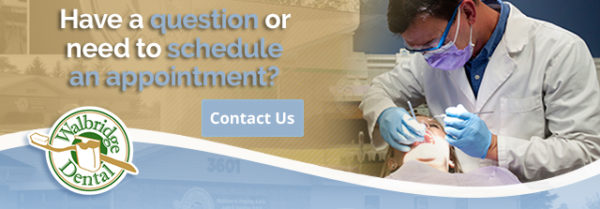Pregnancy is an exciting time in any soon-to-be mother’s life. You want to focus on planning for the new baby, not dealing with painful dental issues. However, pregnancy can significantly increase your risk for developing gum disease known as pregnancy gingivitis. Your dental health is important to you and your new child, so it’s important to pay attention to the signs. If you’re experiencing symptoms of gum disease, read on for the best treatment for pregnancy gingivitis as well as tips for preventing it from coming back!
What Is Pregnancy Gingivitis?
Gingivitis, which is the medical term for inflammation of the gums, is an early form of gum disease caused by plaque formation in your mouth. Plaque formation occurs when bacteria has been left to thrive off the sugars and starches that you eat. When plaque hardens into tartar, it irritates your gums and causes inflammation. It’s important to know that every mouth, no matter how frequently you brush or floss, has bacteria. These bacteria can develop rapidly, which is why daily dental care routines are so important.
When pregnant, your body has dramatic shifts in hormones that result in a higher level of progesterone and estrogen in your body. These changes increase blood flow and cause your gums to be much more sensitive to bacteria and inflammation. Approximately 50 percent of women who become pregnant experience pregnancy gingivitis, typically starting around month two.
The symptoms of pregnancy gingivitis can be easy to identify, and often include:
- Swelling or “puffy” gums
- Tender gums
- Bleeding gums when brushing or flossing
- Redness in the gum tissue
- Loose tooth
Even if your gums are in good health prior to pregnancy, this increase in progesterone may still cause you to develop pregnancy gingivitis. However, a consistent dental care routine of brushing and flossing can drastically reduce the chances.
Treatment for Pregnancy Gingivitis
If you believe you are experiencing pregnancy gingivitis, schedule a dental examination as early as possible. While gingivitis itself is not a serious issue for your pregnancy, it can lead to periodontal disease. There is evidence that periodontal disease can increase the risk of premature birth or low birth weight, so it is important to prevent gingivitis from progressing. Fortunately, the treatments for pregnancy gingivitis are quick and simple:
Hygiene Exam & Cleaning
When you visit your dentist, they will perform an examination to identify if you’re showing signs of gum disease. As a first step, your dentist can perform a thorough cleaning that can remove the plaque build-up causing the inflammation. These cleanings are always important, but during your pregnancy, it’s recommended to plan to meet with your dentist more frequently to prevent issues like gum disease. Once the plaque is removed through a cleaning process called scaling and root planing, the inflammation should go away.
Prescription Mouth Rinse
Another option for the treatment for pregnancy gingivitis is a prescription mouth rinse from your dentist. Typically, this will be a chlorhexidine mouthwash that reduces bacteria in your mouth. It’s important to remember that prescription mouth washes like this are medicines just like any other. Never use someone else’s prescription mouth rinse without first consulting your dentist.
Tips for Preventing Gingivitis
Stay On Top of Brushing & Flossing
The best way to prevent gingivitis and periodontal disease is keeping up with your dental care routine. Brushing twice a day for two minutes and flossing prevents bacteria from building up. While this is, of course, always recommended, it can be challenging during pregnancy when your daily routine is completely uprooted. Because pregnancy makes you more susceptible to inflammation and gingivitis, it’s critical not to let your daily brushing and flossing fall to the wayside.
One of the major problems with gingivitis is that as it progresses, it becomes increasingly painful to brush or floss. This often discourages some from brushing at all, which allows the more serious periodontal disease to form. If this happens, you may stop brushing or flossing altogether. This is a surefire way to let bacteria thrive. It’s easiest to keep brushing than it is to start brushing again after a lapse!
Don’t Miss Dentist Visits
During pregnancy, you’re often seeing doctors more often than your typical year. And we get it – it can be exhausting! While you may not think of your dentist as part of your pregnancy team, we are!
Visiting the dentist at least twice annually also gives you the opportunity to recognize the early signs of gum disease before it advances into periodontal disease. Your dental team will also be able to help indicate areas of your mouth or gums that you may not be brushing as well as you think you are. If you have developed gingivitis, they can also perform the deep cleaning that will resolve it.
If you’re suffering from morning sickness due to pregnancy, it’s important to remember that acids from your stomach can be damaging to your teeth. Any time you experience vomiting, make sure to rinse your mouth with water. If brushing your teeth exacerbates the morning sickness, you can try brushing with just water instead of toothpaste, and add in a fluoridated mouthwash to your daily routine to help combat acidity.
Healthy Diet
Eating healthy for two is something you’ll hear about throughout your pregnancy. But it’s also important to eat healthy for your teeth! With the additional risk that pregnancy brings to your oral health, staying away from problematic foods is a pregnancy gingivitis tip that’s worth its weight in gold.
Do your best to skip sugary food that directly fuel bacteria in your mouth. These foods hasten the rate at which the cycle of bacteria feeding and leaving behind acidic waste happens. More sugar, more enamel loss!
Likewise, acidic foods themselves can do the damage without needing bacteria involved at all. That means citrus fruits, carbonated drinks and more.
Of course it’s most important to listen to your body. Eating citrus fruits or having the occasional soda won’t be a problem as long as you drink plenty of water and keep up with your brushing.
Pregnancy Tumors
Along with pregnancy gingivitis, pregnant women will occasionally notice small bumps or growths on their gums known as pregnancy tumors. While the name sounds scary, typically they are benign and don’t even cause pain. Like pregnancy gingivitis, these growths are attributed to the effects of progesterone and estrogen on the immune system. If you’re concerned about a growth on your gums, you should contact your dentist. In almost every case, these will regress following the delivery of the baby.
Contact Walbridge Dental
It’s common to have many questions during pregnancy. If you’re concerned or just looking for information, the professionals at Walbridge Dental provide complete family dental care to families in the Millbury community. Contact us online to set up an appointment now or call us at 419-836-1033.
Connect on Social Media!


